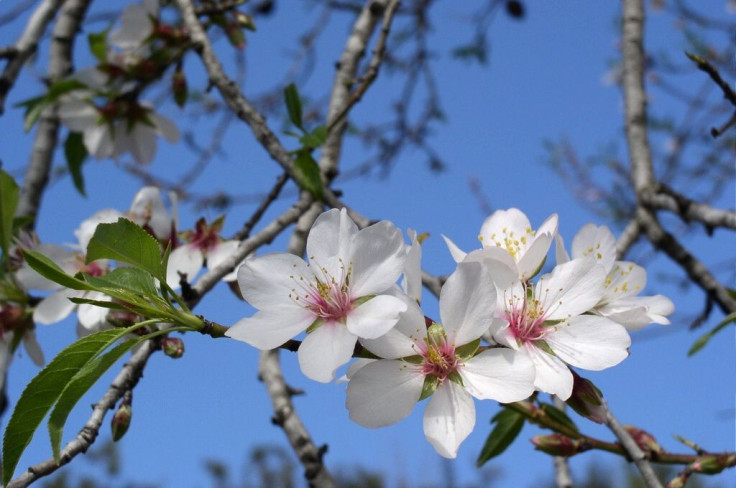Tu B’Shevat 2015: What To Know About Jewish Holiday Marking Spring And The New Year For Trees

Sundown Tuesday marks the 15th of Shevat in the Jewish calendar, the time when winter begins to fade and fruit trees begin a new cycle of production. It’s a festive occasion, if a lesser known one, with wine, cakes and cookies and a candle-lit atmosphere, and is sometimes referred to as the Rosh Hashanah, or the Jewish New Year, for trees.
The term Tu B’Shevat is Hebrew. Tu is the word for fifteen, Shevat is the name of the month. The day is also referred to as Jewish Arbor Day. Tu B'Shevat is passed by eating fruit native to the Holy Land, like olives, grapes, pomegranates and dates, as well as saying blessings and drinking wine. The day has a long history with a host of customs dating back to the time of the Temple.
Beginning at sunset and ending at sunset Wednesday, the holiday represents the beginning of spring, at which point the cold lessens, allowing sap to emerge from the trees and fruit to begin to grow. Fasting and eulogies on the holiday are forbidden, and an important custom is to eat fruits of the Seder and other traditional produce.
The loosely defined fruits of the Seder are wheat, olives, dates, grapes, figs, pomegranates, citrons, apples, walnuts, almonds, carobs and pears. During the Seder itself, specific blessings are said before and after each food and drink.
In Israel today, the holiday is an environmental and ecological awareness, with tree-planting events and other programs to raise environmental awareness. Modern customs and forms of celebration outside Israel include planting trees, eating various kinds of fruits and taking part in Seders.
The new year of Tu B’Shevat is one of four in Jewish calendar. The date, once an agricultural festival, was once used to calculate the ages of trees for biblical tithes. These days, in Orthodox Judaism fruit that has ripened on a three-year-old tree before Tu B’Shevat may not be eaten. Fruit that ripened afterward can be consumed.
© Copyright IBTimes 2025. All rights reserved.






















